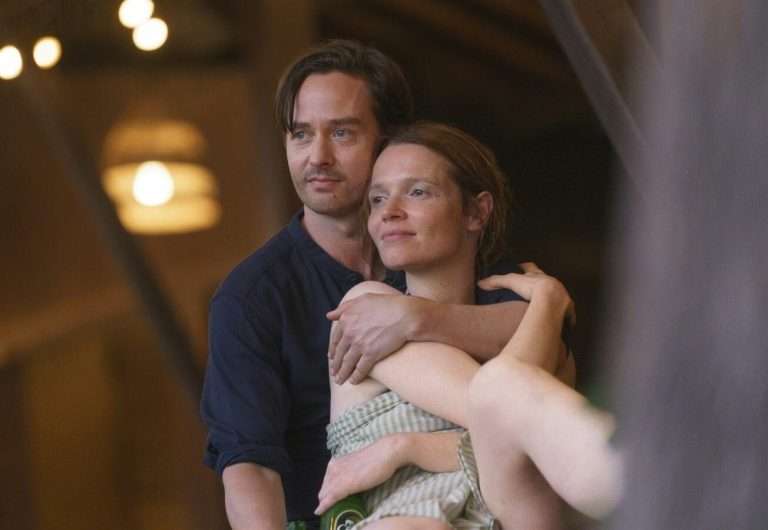Following the anthology series Lust Stories (2018) and Ghost Stories (2020), Netflix offers its third anthology in the stories series, and first Tamil anthology film, titled Paava Kadhaigal (Sinful Tales aka Tales of Sin, 2020). Directed by Sudha Kongara, Vignesh Sivan, Gautam Menon, and Vetrimaaran, the quartet of tales attempts to showcase how women pay a heavy price for the patriarchal notions of honor.
Barring few pertinent critiques, Paava Kadhaigal was largely met with two types of ‘appraisals’. The first extolled the virtues of its progressive take on dark societal truths. And the other, while predominantly appreciating its so-called hard-hitting messages, mildly touched upon the problematic aspects that slightly undercut its intended impact. Celebrating mediocrity is one thing, but ignoring some of the inept and denigrating aspects of Paava Kadhaigal would only impede the determined efforts of filmmakers, aspiring to effectively tackle such issues.
The first and foremost issue with Paava Kadhaigal is also a prevalent one in Tamil cinema; filmmakers taking up a well-trodden path to tackle burning social issues. This involves relying on stereotypes, graphic violence, and establishing surface-level conflicts. Of course, a mainstream narrative advances by the creation of simple conflicts and doubt. But then there are also films like Madras (2014), Aramm (2017), Kaala (2018), Pariyerum Perumal (2018), and Asuran (2019) – Tamil movies that didn’t completely flatten out the complexities involved and yet received mainstream acceptance. Granted the short-film format doesn’t provide enough breathing space for intricacies. Nevertheless, Paava Kaadhaigal hastily moves through the character portrait and their issues, only to uphold the melodramatic narrative arc.
Hackneyed and Transplanted Conflicts
Intensely appealing to emotions is the basic requirement of melodrama. Sudha Kongara’s opening Paava Kadhai, Thangam succeeds on that front. However, the primary problem with Thangam is that it isn’t a melodrama on transgender identity/emotional issues, but it’s a heterosexual romantic melodrama where a transwoman character plays a big role. Or it starts with the former in mind but ended up with the later. Hence, though the central character was relatively written well for a main-stream narrative, her character trajectory adheres to a strict formula.
Related to Paava Kadhaigal: Choked [2020] Netflix Review – A tale of a crumbling marriage crushed by a socio-political metaphor
Thangam deals with the unrequited love and the eventual sacrifice of a Muslim transwoman, Satthar (Kalidas Jayaram). The story is set in the 1980s and interestingly refers to T. Rajendar’s Oru Thalai Raagam (1980). This particular movie set up a trend for unrequited love stories (of men) and has a disgusting song, stereotyping the transgender community which is often referenced in Tamil movies.
Thangam could have been a deeply affecting portrait of Satthar, who is treated as an outcast by everyone in the village including her family, except Saravannan, the childhood friend and her object of love. But, director Sudha soon transplants Satthar’s story into the setting of Mani Ratnam’s Bombay (1995). Saravanan is in love with Satthar’s sister. Though Satthar’s dreams are thwarted, she facilitates the courtship between the interfaith couple and eventually helps them to elope.
The narrative takes another misstep here by taking the focus away from Satthar. It’s understandable that the intention is to create a mood for climactic lament. But the transition is abrupt and it relegates the transwoman’s fate to a mournful flashback. Furthermore, I felt that it only lessens the impact of the inherent irony in the situation, i.e., the villagers readily welcome the interfaith couple into the community, but not support the mere existence of a transwoman
In Thangam, the conflict is stacked and hastened in a way – seasoned with a skewed, mainstream representation of Muslims – which can only progress towards a heart-rending song and the pitiful death of a central character. Transplanting an overused trope – unrequited love angle – into a transwoman story does seem intriguing. However, the melodramatic warp adulterates the transwoman tale. Satthar’s life under the shadow of discrimination, feelings of love, and yearning becomes mere tools to attain that overreaching story arc. In hindsight, I feel Thangam would have benefitted more from an insightful approach to depict the trans woman experience, something more effective than an ably-staged sad denouement.
Despite its flaws, the good thing about Sudha’s Thangam is that a transwoman’s story is included in this anthology, which on the whole is centered around patriarchal ideas about women’s honor. At one moment in the narrative, Satthar even mentions how her plight is worse than that of a cisgender woman. In an era when all the established understandings of sex and gender are being called into question and met with suspicion, we have also witnessed the emergence of trans-exclusionary rhetoric. Just in June 2020, JK Rowling posted a series of controversial tweets about the transgender community which garnered lot of backlash. Hence, Sudha’s choice to write a story on trans woman, however, misrepresented or sentimental, for this anthology is commendable.
Oh, You Venomous …………………………..!
I think Vignesh Sivan’s idea of being a ‘woke film-maker’ includes queer baiting and making his women characters freely use expletives that are actually rooted in misogyny.
Q: How can you hint that two women are lesbian?
A: One woman should be in her bra and follow it up with a top-angle shot of them lying in the bed.
Q: How can I extract dark humor from a situation where one woman is already killed and two other women’s lives are at stake?
A: Make the two women kiss each other to the point of titillating their persecutors.
Sivan’s Love Panna Uttranum revolves around a casteist leader (lion) only known as nana, and his much more virulent alter-ego: a grey-eyed person of short stature (fox). Nana has twin daughters (played by Anjali), and one of them decides to love the driver. Irked by his daughter’s choice, nana promptly kills her, only to be unexpectedly visited by his other ‘modern’ twin daughter. Moreover, this other daughter is accompanied by her supposedly lesbian partner Penelope (Kalki Koechlin) – because it had to be) and a bothersome rap singer friend. The choice to cast Kalki in the role of Penelope does have its reason. It’s essential for the sake of that allegedly comical scene: someone who can perfectly understand and speak Tamil and yet look like a white-skinned foreigner. And maybe to hint that the ‘proper’ Tamil girl embraced lesbianism due to the foreigner’s influence.
One can make an argument that Vignesh Shivan’s short is a comedy about a daughter who breaks loose from her father, the leader of a clique that slyly propagates honor killings. The director has maybe tried to channel his anger about such a group of men by belittling them. But Shivan’s erratic tone only becomes detrimental to his intention, since the story gets lost among ill-conceived humor, pathos, and a cursory twist. Moreover, this is the most technically incompetent among the four as the focus is more on the ‘cool’ color palettes, while it remains inane in terms of staging.
Ill-Conceived Asymmetrical Portrayal of a Deeply Traumatic Event
In Vaanmagal (Daughter of the Skies) director Gautam Menon – known for his intriguing dramas set in the urban milieu – has attempted to deliver a scathing commentary on the notions of purity associated with woman. But he simply gets carried away by his usual predilection for staging graphic and psychological violence. Gautam’s short, set in a small-town, a 12-year-old girl is sexually assaulted. The father (played by Gautam himself) and mother (Simran) are shown to be the typical small-town middle-class parents, for whom the questions of honor plague their mind more than their child’s trauma.
Gautam takes ample time to showcase the puberty rituals of the eldest girl. It reminds us of Simone De Beauvoir’s statement: “One is not born, but rather becomes, a woman.” But Gautam isn’t showcasing this to observe or subtly comment how the menarche rituals provide a means of rigidly codifying female behavior. His intention is rather simple. The younger girl – who is later sexually assaulted – expresses curiosity on the attention her sister receives during the ceremonies. And once the traumatic incident occurs, the dad tearfully remarks how his child has to become a ‘woman’ in this manner.
Also Read: The 20 Best Indian Movies of 2020
In another scene, when the elder girl comes of age, the mother asks the daughter to not move around the house because she won’t be able to ‘clean all the things she touches’. Movies often convey messages of what is accepted in society, especially in terms of behavior. This type of information doesn’t have to be said out loud, but can also be implicitly conveyed. Thus, viewers who believe in the so-called traditional norms or those without knowledge about these issues would accept such information. Here it seems that Gautam is craftily reinforcing the norms rather than challenging it. It simply remains as a jumping-off point to set up the misfortune.
Equally enraging are the final series of sequences when there’s an elaborate staging of the mother who kills her ‘blemished’ child by pushing her off the cliff. Later this moment is revealed to have only happened in the mother’s head. In between these scenes, Gautam cooks up a scenario of gratuitous violence as the college-going brother of the girl kidnaps and punishes the rapist.
Vaanmagal is clearly not about the traumatized, sexually assaulted pre-teen. But I am confused over Gautam’s choices to depict the narrow-mindedness of the family that’s indoctrinated to uphold this manufactured concept of honor. It made me wonder who is actually narrow-minded: whether it is the characters or the film-maker himself? In fact, what we see on-screen are the misguidedly cathartic ‘penis-clipping’ sequence and a shocking moment involving the mother & daughter. However, powerful those final dialogues are supposed to be, the representation – between this violence and that ‘message’ – suffers from a greater imbalance. Therefore, there’s an unbridgeable gap between what’s shown and what Gautam arrives at, which has always been a contentious aspect in his oeuvre.
A Somewhat Poignant Short that once again emphasizes the Us Vs Them Mentality
Vetrimaaran’s Oor Iravu (One Night) isn’t as frustrating as the Vignesh Shivan and Gautam’s shorts. His story is largely devoid of over-the-top performances or the problematic gaze. However, the director can be criticized for choosing a suspenseful tone, which felt odd since the outcome of the tale is already spoiled in the third short film. There’s one other problem in Oor Iravu which is also uniformly present in the other segments.
When it comes to narratives dealing with casteist mindset and honor killing, the filmmakers – knowingly or unknowingly – portray their intolerant characters as the few ‘bad seeds’. Interestingly, in Paaval Kadhaigal, these ‘bad seeds’ hail from a particular social milieu. When you combine these two – bad people & milieu – an ‘identified group’ comes into existence. Moreover, one common factor which links the four shorts – apart from the thematic preoccupations – is that it largely revolves around a violent crime. Therefore, this naturally aggrandizes viewers’ assumptions about this ‘identified group’. ‘Othering’ happens when something like art or media poses an assumption about a group we actually don’t know. In Paava Kadhaigal, the rotten characters who resort to murder (or at least think of it) can easily become the ‘Other’.
In reality, the circumscribed role of women in society and the breach of such made-up boundaries don’t always end up in violence. Many cruelties are inflicted upon women in the name of family honor, and the scars of it can largely be psychological and easily hushed up. However, in Paava Kadhaigal, all the four shorts keep taking the same path: men taking up violence for the concept of family honor. And through such unsubtle, grandiloquent depictions of social injustice, the tales themselves become commodities to be sold for consumption on the liberal market.
Yet the reason why Vetrimaaran’s Oor Iravu isn’t as irksome as the others are due to his fairly level-headed approach to the material. Scripted in his signature non-linear style, the short tells the story of the father deceiving his pregnant daughter in order to take her back home and kill her, for the transgression of marrying a man from another caste (the husband overtly coded as a ‘dalit’).
Also by Vetrimaaran: Vada Chennai [2018] – A Gripping Slow-Burn Crime Drama
The central characters are played by popular, charismatic Tamil actors – Prakash Raj and Sai Pallavi. This in itself presents a problem, i.e., the presence of these two actors facilitates the melodrama and thus overwhelms the inherently hard-hitting content (those not familiar with Tamil cinema wouldn’t have a problem though). Maybe the limited running time didn’t allow Vetrimaaran to deeply enter into the father’s psyche like what Mari Selvaraj did in Pariyerum Perumal. But the mid-close-up shots of Prakash Raj are antithetical as it ends up invoking a bit of pity for his character too. In Tamil, the word ‘Paavam’ evokes two meanings. One is sin, and the other is an exclamation of pity. Maybe the four filmmakers confused one for the other.
Melodrama can make us feel certain situations only through a certain set of emotions. Oor Iravu remains manipulative in this way. But the other three shorts are guilty of appropriation and misrepresentation. There are voices against Kalidas Jayaram, a cis-heterosexual male, playing the character of Satthar. But that’s just a minor problem after considering the plethora of ‘paavams’ committed by Paava Kadhaigal.











![Seal Team [2021] Netflix Review : Seals vs Sharks battle for survival loses itself to incoherent execution](https://79468c92.delivery.rocketcdn.me/wp-content/uploads/2022/01/Seal-Team-2021-768x432.jpg)
